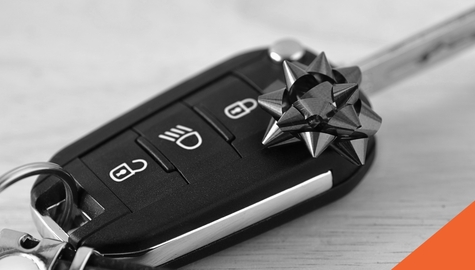Auto Insurance 101: Can I Use My Personal Car For Business?
Friday, 4 January 2019
If you are using your personal car for business, you need to ensure that your insurance policy covers more than just your personal usage of your vehicle. This blog post will look at what you need to consider if you want to use your personal car for business.
What is the difference between personal auto insurance and commercial auto insurance?
Personal auto insurance is designed to protect your vehicle for personal use. In Canada, you are legally required to have auto insurance when driving a vehicle. The fines for not having insurance coverage can be up to $50,000. Personal auto insurance often includes commuting to work and will sometimes include some business use such as a real estate agent driving to property listings.
On the other hand, commercial auto insurance is designed to protect your business auto requirements. This could be completing deliveries if you own a business or driving to job sites if you are a construction contractor. Different insurance companies may vary on what is covered under your policy. It is advisable to seek the advice of your insurance broker to be assured that you are appropriately covered.
Some questions that may help answer whether your vehicle should be covered under a personal or commercial policy are:
Who owns and operates the vehicle?
If your vehicle is owned by the business and used for business purposes, you should have commercial auto insurance coverage. Any employees who utilize the vehicle will also need to be covered under your policy.
How is the vehicle used?
You should have commercial auto insurance coverage if you use your vehicle for:
- transport ing or delivering products or materials
- transporting tools or equipment
- providing driver education
- transporting customers (i.e. a taxi service).
What type of vehicle are you using?
Large commercial vehicles often cause more damage in an accident and your coverage will likely reflect that. Vehicles specifically designed for construction or maintenance purposes, should have commercial auto insurance coverage.
What does a commercial auto policy include?
Different Insurance Companies will have variations in the policies that they provide but in general, commercial auto policies should include:
- Injury to you, your employed drivers or passengers
- Loading and unloading liability
- Replacement car coverage
- Across state or province coverage if applicable
Can I use my personal car for business?
With the appropriate insurance provisions, privately owned vehicles can be used for business purposes. Business purposes could include:
- visiting clients
- company errands, such as bank deposits
- storing or transporting goods on behalf of a business
- newspaper or pizza delivery
- paid ride sharing (i.e. Uber)
If a vehicle crosses the line between personal and business usage, often there will be some commercial coverage that should be added. This is to your benefit as failure to disclosure commercial usage could void your coverage and may result in the cancellation of your policy. This will then flag you as a high-risk driver which will make you harder and more expensive to insure. In addition, this may be considered as operating a vehicle without insurance. This could result in fines of up to $50,000, potential vehicle impoundment and license suspension. When in doubt, it’s best to review your policy with your insurance broker.
Should I use my personal car for business or purchase a company car?
If you are a small business, consider using your personal vehicle for business instead of purchasing a company car. If you use your personal vehicle (under a commercial auto insurance policy of course), you can deduct the following expenses at tax time:
- License and registration fees
- Gas costs
- Car insurance
- Interest on money borrowed to finance a vehicle
- Maintenance and repairs
- Leasing costs
- Parking fees
You will have to prove to the Canada Revenue Agency (CRA) what you use for business purposes, so we recommend that you keep a log book to track your business-related vehicle activities. There are several apps on the market that you can use for this including: QuickBooks Self-Employed, TripLog and MileIQ.
For each business trip, keep track of the following:
- date
- destination
- purpose of trip
- mileage
In addition, record the odometer reading of each vehicle at the beginning and end of the year. Plus, keep all receipts associated with items such fuel, supplies and insurance You should also make note of any changes of vehicles during the year. If you use multiple vehicles for your business, you must keep a separate logbook for each one as each vehicle’s expenses must be calculated separately.
Make sure you have the appropriate insurance coverage for your vehicle by contacting our team of brokers today. Billyard Insurance Group has a team of commercial experienced brokers who have knowledge in personal lines also. They will be able to shop the coverage on your behalf to ensure you are covered appropriately for the best price. Contact us now.



